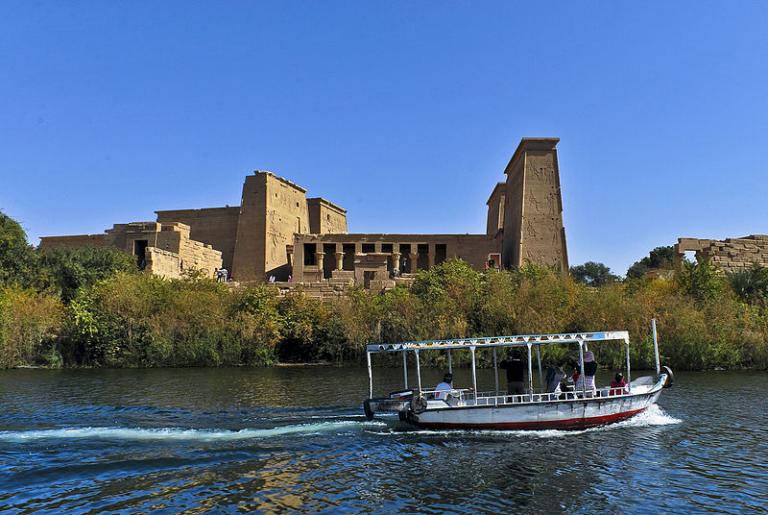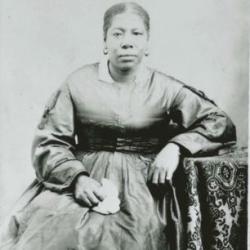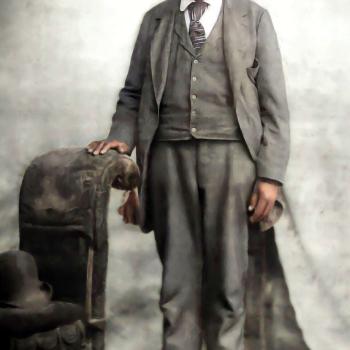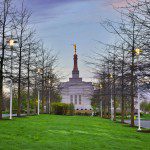
(Wikimedia Commons public domain photo)
Moving steadily forward with my manuscript on Islam and the Middle East for Latter-day Saints:
One of the most pathetic things about the Palestinian-Israeli dispute is the pervasive theme of homelessness. The Jews, an exiled and scattered people, found a renewed homeland in Palestine. But their return has helped to create a new population of refugees. Now, the Palestinians yearn to return to their lost land. But Jews, too, continue to come to Palestine. Despite the uncertainty and stress of life in Israel, more than two million Jews from around the world have emigrated to the country since its founding in 1948. Israeli law grants the right to settle in the country and to receive Israeli citizenship to any Jew from anywhere in the world—and not merely to any Jew, but to his wife and to any of his descendants for two generations and to any of their wives, whether or not those people are actually Jewish in religion or ethnicity. It can well be imagined that this policy, which grants automatic citizenship to people from Warsaw, Minsk, and Melbourne, is irritating to many Palestinian Arabs. They and their families may have been residents of Jerusalem for a score of generations or more, but, unlike the granddaughter-in-law of a Jew from Beverly Hills or Brooklyn, they cannot hope for the right to vote or to participate in government decisions.[1] The rate of immigration, which had been falling, has surged again because of newly lenient Soviet and now Russian emigration policies, which have allowed many Jews to leave who had been harassed and forbidden to do so under earlier Communist rulers. (The pressure to find housing for these immigrants is one of the factors that led to the building of Israeli settlements on Arab land, which rapidly became one of the chief stumbling blocks to the peace process.)
Religion has had less to do with the conflict, historically speaking, than many people imagine. The PLO insists that it is not anti-Jewish, just anti-Zionist. Its ranks include nominal Christians as well as Muslims, and it insists that its opposition is solely political and nationalistic. Furthermore, the early Zionists were not religious. Nor, for that matter, are the vast majority of Israelis of today. They are Jewish, but their Judaism is expressed in speaking Hebrew, serving in the Israeli army, and building a Jewish state. They have little connection if any at all to the religion of Judaism. Yet it is inconceivable, in a society (on both sides) where religion is so centrally important, that religion should play no role at all. In fact there are religious hostilities between Muslims and Jews. Islam, from the Qur’an forward, has been critical of the Jews, much in the way that Christianity and Christian texts have been critical of them. Furthermore, Islam sees itself as the last revelation of God and views both Christianity and Judaism as apostate and corrupt remnants of earlier revelations. When this fact is coupled with Islam’s political orientation, it is not surprising that Muslims have been deeply troubled by Jewish rule over what they regard as Muslim territory—not just any territory, but some of the most sacred on earth. Under Islamic law, Jews and Christians simply do not have the right to rule over Muslims. (This is not unrelated to the early Mormon claim that the governments of the earth were, although worthy of support, ultimately illegitimate usurpers and to the expectation that, someday, he would come “whose right it is to reign.”)
[1] I choose the “granddaughter-in-law” illustration quite deliberately. Even if she is not of Jewish birth, Israeli law will consider her a Jew by reason of her marriage to the grandson of a Jew and will grant her the right of immigration and settlement.
Posted from Aswan, Egypt














